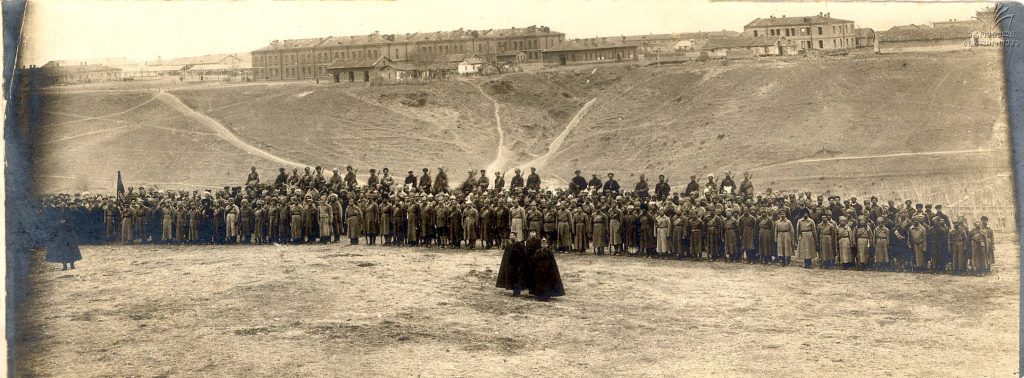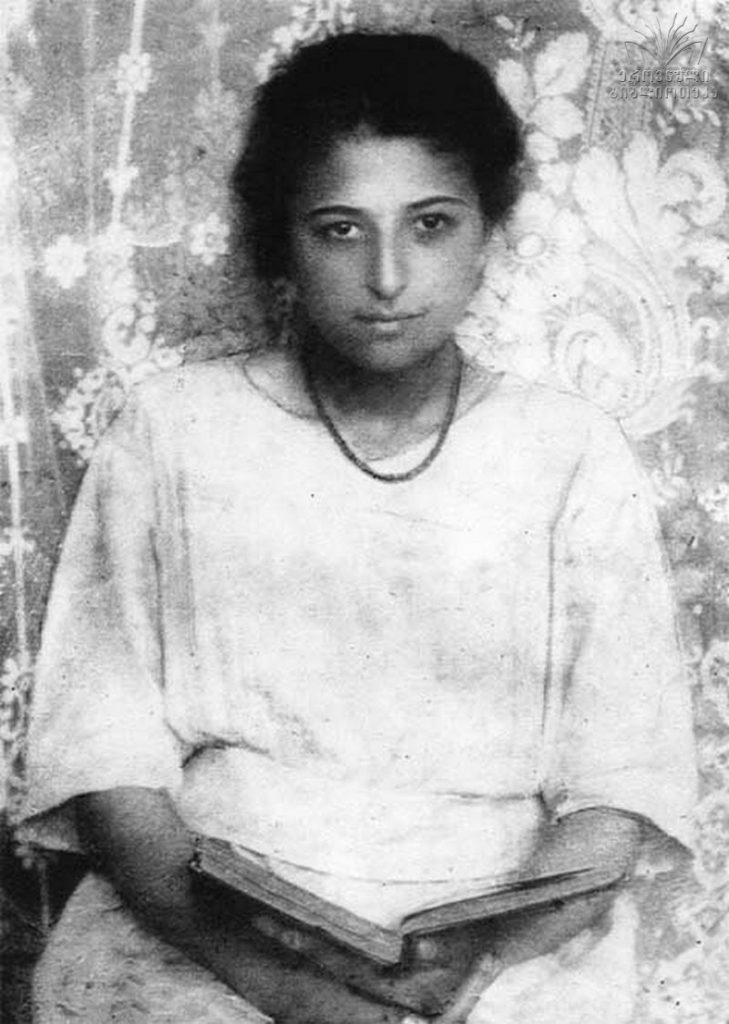100 years since Soviet occupation – what was Georgia's first republic like?
Georgia is marking 100 years to the day since Tbilisi was occupied by the 11th Red Army.
The entrance of the Red Army ended Georgia’s three-year run of independence as the country became part of the Soviet empire for the next 70 years.

The Red Army invaded Georgia on February 15, 1921 under the pretext of supporting the ‘rebellious workers’. On February 25, the 11th Red Army was already in Tbilisi. Despite five weeks of heavy fighting, the citizens of the Democratic Republic of Georgia were unable to defend the country from occupation.
The government of the Democratic Republic of Georgia first moved to Batumi, and left Georgia on March 17 of the same year. The Democratic Republic of Georgia, which existed for less than three years, ceased to exist.
In Soviet times, February 25 in Georgia was celebrated as a holiday – the day of the Sovietization of Georgia.
What was the first Georgia that ceased to exist 100 years ago like? JAMnews recalls the most important legacy of the First Republic:
“From now on, the Georgian people are the bearers of sovereign rights, and Georgia is a full-fledged independent state,” says the Act of Independence of Georgia, adopted by the National Council exactly one hundred years ago, on May 26, 1918.
This is how the first Georgian republic was created, based on the principles of freedom and democracy.
The three years that the republic existed were full of achievements and mistakes and make for a very important page in the history of Georgia. However, this period has not yet been sufficiently studied, so there are still many questions.
How it all started
Independence was not unexpected. The formation of the state was influenced by important internal and especially external factors.
Since the moment of the signing of the Georgievsky Peace Treaty in 1783 until the proclamation of the First Republic in 1918, Georgia was part of the Russian Empire for 117 years.
Discussions about independence in Georgian society began at the end of the 19th century, after the emergence of a galaxy of young thinkers, writers and publicists who were educated abroad (for example, the Tergdaleuli group, etc.). This is a period of widespread Russification of Georgia, during which Russia tried to destroy Georgian identity, the Georgian language.
At this time, young people appeared who were able to change the national identity and political culture in society.
They fought with the word – during this time several educational societies were created, a high-quality and interesting press appeared (Droeba, Iveria, Tsiskari, etc.). On its pages, Georgian writers and publicists promoted European values, criticized the vicious lifecycle of Georgians, translated foreign works and thereby gradually changed the minds of people.
“During this period, society was already sufficiently mobilized and already possesses a high political culture. Therefore, the theory that independence was an accident is erroneous and is a Soviet stereotype,” said Irakli Khvadagiani, a historian and researcher at the Laboratory of the Soviet past.
However, it is obvious that this alone was not enough for the country’s independence.
After the First World War, the Russian Empire weakened significantly. The February and October revolutions of 1917 led to the final collapse of the empire and opened up new perspectives for various nationalities within the empire.
As a result of the October Revolution of 1917, a new Soviet government came to power in Russia, which local influential groups in Georgia did not recognize.
On November 19, the first national congress was held in Tbilisi, at which the “National Council of Georgia” or, in fact, the government was elected. Its chairman was named Noah Jordania, one of the most controversial figures in the history of Georgia, who is credited with many unforgivable mistakes, but also serious achievements.
A few months after the elections to the National Council, on May 26, 1918, the Independence Act was issued. For the first time in history, a country called “The Independent Republic of Georgia” appeared.

The main achievements of the First Republic
First constitution
On February 21, 1921, the Constituent Assembly adopted the first Constitution of Georgia in Tbilisi. The document, which received great recognition in the world at that time, consisted of 17 chapters and 149 articles. The constitution guaranteed the rights of women, religious and ethnic minorities. The death penalty was abolished.
The first Georgian constitution lasted only four days.
At the time when the Constituent Assembly of Georgia unanimously adopted the constitution, instead of a popular celebration, shooting was heard in the streets – the Red Army had already invaded Georgia. And on February 25, 1918, Georgia was annexed.

First elections
On February 14, 1919, the first democratic elections were held in Georgia. In the elections, the Constituent Assembly of Georgia was elected (an approximate analogue of the modern parliament).
It was this body that subsequently adopted the first constitution. Fifteen parties participated in the elections, six of which went into the parliament. And the first ruling party in the history of Georgia was the Social Democratic Party.
First international relations
After a century of unsuccessful attempts, Georgia for the first time succeeded in getting Europe into Georgia bypassing Russia. The future Prime Minister of Great Britain and the Minister of Justice of Belgium came to independent Georgia for the first time.
Georgian politicians and diplomats were also able to find serious foreign support in Germany. However, these were the first steps of Georgia in diplomacy. And over its three-year history, it managed to find a strong foreign ally to defend against Russia.
Women in politics
The legislative body includes five women from 130 MPs of the Constituent Assembly: Minadora Ordzhonikidze-Toroshelidze, Eleonora Ter-Parsegov-Makhviladze, Kristina Sharashidze, Elizabeth, Liza Nakashidze-Bolkvadze and Ana Sologashvili.
It was these five women who signed the first constitution of Georgia.
First reforms
Over the three years of its existence, the Independent Republic of Georgia carried out several important reforms.
Courts of general jurisdiction, a supreme court structure and a jury system were established. Work began on the legislative framework following the example of European countries.
The need arose for basic education – the construction of schools began. The Russian language was banned in educational institutions, government agencies, in the army and in court.
At the same time, in the regions where ethnic minorities live, people were not prohibited from receiving education in their native language, although the study of the state language – Georgian – was mandatory. During this period, the National University was created. The state begins to select the best students and send them to European universities, paying for their education from the state treasury. But with one condition – that the students must return to Georgia upon graduation.
During this period, an agrarian reform was carried out – most of the land fund was transferred to state ownership. All citizens are provided with a minimum guaranteed land plot.
End of the First Republic
By the beginning of 1921, only Georgia remained an independent country in the Caucasus region. In 1920, Azerbaijan and Armenia were defeated in the confrontation with Soviet Russia. These two neighboring republics, which gained independence together with Georgia in 1918, have already become Soviet.
The Entente (the military-political bloc of Russia, Great Britain and France) then had their own problems, and she did not show interest in the Caucasus. Then Russia reached a turning point in the civil war and then headed to the Caucasus. And nothing prevented her from re-conquering Georgia.
The 11th Red Army invaded Georgia on February 12, 1921 from the territories of Soviet Armenia and Azerbaijan.
The Georgian army, people’s guard and volunteers met the 11th Red Army on the outskirts of Tbilisi. The main battles took place in the region of Kojori and Tabakhmela.
After several days of bloody battles, Georgia was defeated and became part of the Bolshevik empire.

Historians note that the invasion of the Red Army took place in violation of the treaty with Russia of May 7, 1920 on the inviolability of Georgian territories.
“The Soviet government in Moscow violated the peace treaty signed with our government on May 7, 1920 and, without declaring war, crossed the borders of socialist Georgia under the banner of communism. The Moscow government continues the policy of tsarist imperialism and seeks to enslave small peoples,” an excerpt from the call of the socialist organizations of Georgia to the world proletariat on February 22, 1921 reads.
The legitimate government went into exile and sought international support there. Most of the parliamentarians stayed in Georgia and participated in the resistance movement.


















